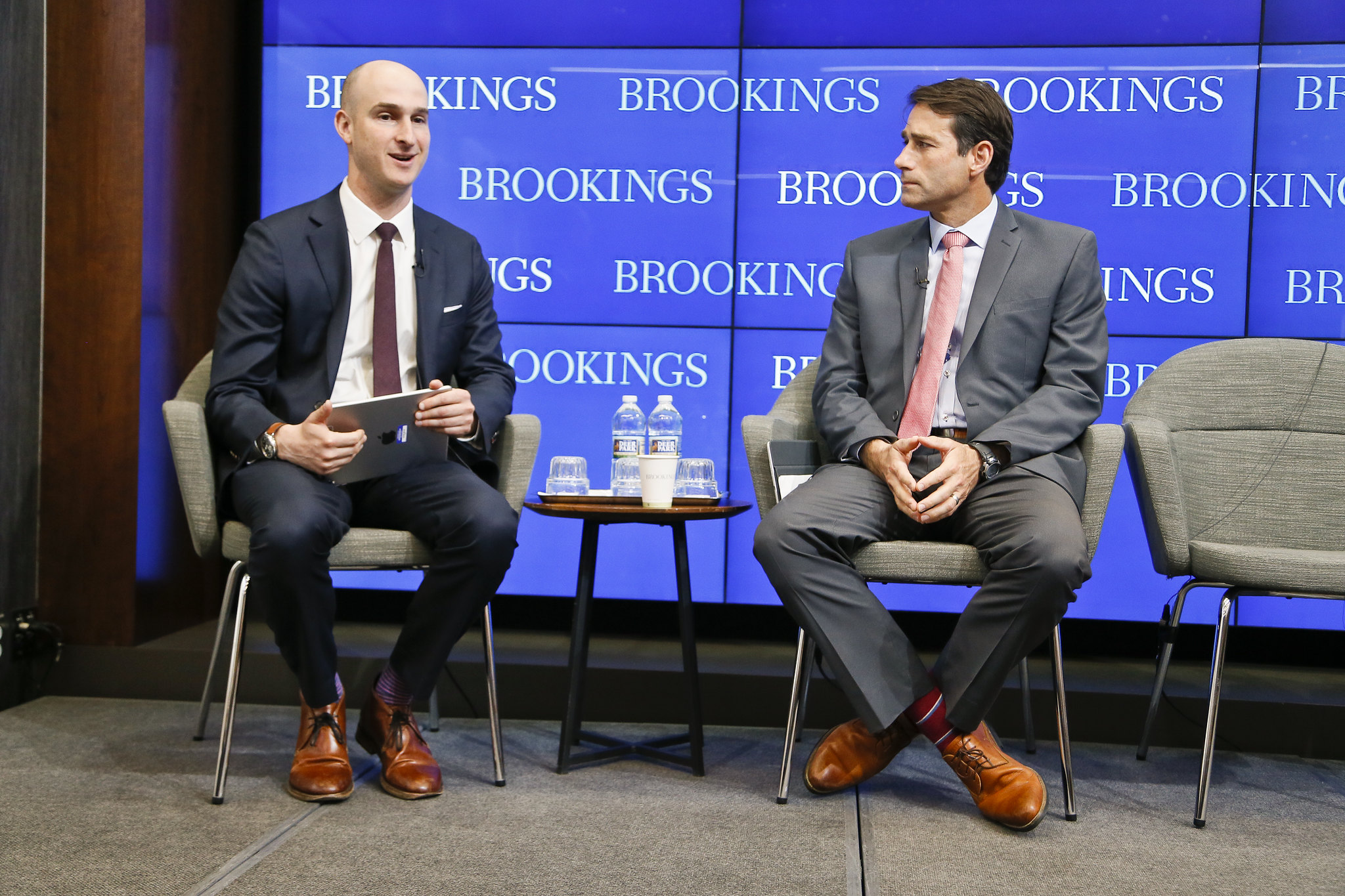Congress should stop splurging on new highways and instead expand transit to help Americans break their century-long addiction to a device that is killing us, the car, a top Washington, D.C. think tank argues.
A new report from the Brookings Institution says lawmakers must establish a new set of economic, social and environmental goals that seek to address income inequality, sprawl, and catastrophic climate change and then direct funding to localities based on those values.
"Transit agencies face a limitation, where federal funding can only support capital investments such as fixed-route construction and vehicle purchases, with no support for more frequent bus and train service that could put essential destinations and jobs in closer proximity to workers," said the report, "To Fix Our Infrastructure, Washington Needs to Start From Scratch."
Adie Tomer, the report's author, believes lawmakers and policy leaders must ask themselves what they want transportation to achieve beyond congestion relief which won't happen with wider roads.
"The answer needs to be oriented around economic equality, environmental stewardship, as well as competitiveness for our industries and all our careers. And it needs to be done in a way, since it's federal, to be a shared platform for prosperity," Tomer told Streetsblog.
The report earned support among Washington's transportation advocates who believe Congress should curtail any spending on new road projects until existing highways and bridges are fixed.
"The way we fund infrastructure simply is not working — and in many cases actively works against our national goals," Transportation 4 America Director Beth Osborne told Streetsblog. "We need more groups to join T4America and Brookings in stating the obvious: legislation designed to build highways over other transportation options doesn't work for 21st-century America."
That would be a steep challenge since members of Congress don't always think beyond the next two-year election cycle, let alone have the creativity or the courage to even think about what infrastructure the nation even needs going forward.
"They need to enter a wide-open potentially uncomfortable space of debating the entire purpose of these programs," Tomer added. "That’s a really challenging task for staff and in particular for members. They may not have the ability to see it past the finish line and that’s just not something we see Congress typically do."
So far Washington's progress has not been promising. The White House and Congress has been mired in partisan acrimony and any discussion on infrastructure has been sidetracked by the president's political distractions, turning "Infrastructure Week" into a quarterly punch line.
Congress meanwhile will have an opportunity to redraw its transportation spending plan when the five-year $305-billion Surface Transportation Act expires next September. The GOP-controlled Senate proposed spending $287 billion on the highway portion of a new five-year law, which is 40-percent higher than the previous version and would largely preserve the status quo in road investment.
Even though Congress has been "shoehorning" transit projects into an interstate highway program since the 1980s, there's potential for societal-altering change if lawmakers are willing to reevaluate infrastructure policies. Advocates hope that could mean more funding for transit, cycling, pedestrian projects that encourage Americans to live in denser walkable neighborhoods.
"We need to get us off car dependence, but we can naturally get there by prioritizing how we address climate crisis and transportation’s contribution to it and how we can address income equality," Tomer said. "There’s no question both sides of the aisle leadership are interested in making sure every family has financial means to get to their jobs."
Bitter partisanship within Congress and between Congress and the White House could derail transit funding as it has stalled other infrastructure projects like the Gateway Tunnel in the first three years of the Trump administration. This year, Republicans on the House Transportation Committee have been grumbling that Democrats cut them out of several bills involving climate change.
Republicans will eventually see the need of repairing infrastructure and expanding transit as sea levels and temperature rises and hurricanes get stronger, Tomer believes. And there may be more comity over infrastructure between the two parties than what gets reported in the press.
"Infrastructure itself is not partisan. It’s just technology," Tomer said. "A car is just apiece of metal, a train is just a piece of metal. It’s what we do with it."






